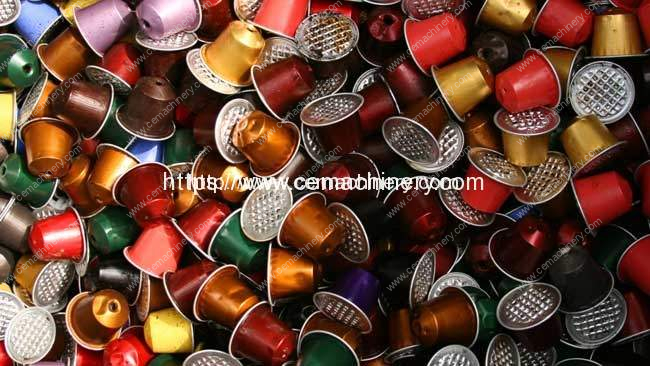How Coffee Pods Create A Massive Amount Of Waste
Mornings just aren’t the same. Late sleepers, once troubled only by
the quiet gurgle of the boiling kettle, are now shaken from their
slumber by the guttural sounds of steaming water being forced through
aluminium or plastic coffee pods.
Conveniently secreted into the coffee machine’s collecting
receptacle, the pangs of guilt from the latte socialists (and others)
are only tweaked when the dank pods require emptying — generally well
after the coffee has been consumed.
Australia is in love with coffee pods. Wooed by no less than
Hollywood star George Clooney, pods have taken Australian homes and
workplaces by storm.
As is the case for other beverages, Australians have shifted to drinking better quality coffee and pods are part of that mix. While pods are one of the most expensive
ways to buy packaged coffee, they are also one of the most convenient.
The Swiss coffee pod innovators at Nespresso (a division of the food
behemoth Nestlé) have been joined by usurpers including Germany’s Aldi
and Italy’s Cafitally. Proving that patents are easier to take out than
protect, Nespresso’s share of the world pod market has been in steep
decline. This having been said, the industry is in a rapid phase of
growth — sales are soaring — and thus few are complaining.
Yet the news is far from all good. Pods are emblematic of a wider
problem in our society, where we often say one thing and generally do
another. In this case, where many of us like to speak about being
“green” or living sustainably, even while sipping from a cup of coffee
produced by an industry that is about as sustainable as an ageing Soviet
nuclear power plant.
If, as some predict, pod use doubles over the next five years,
a veritable environmental tsunami is in store. While recyclable in
theory, in practice pods rarely are, particularly the plastic variety
beloved by the budget-conscious.
Instead, they end in landfill: perhaps a poignant sign for garbage
archaeologists a thousand years from now of this generation’s
environmental profligacy.
Last year, independent consumer group Choice reported that Nespresso had sold an estimated 28 billion capsules worldwide —
about 28 million kilograms of aluminium, much of which may be sitting in
landfill, with recycling figures not made public.
New Zealand’s Ethical Coffee Company has created a vegetable-based biodegradable coffee capsule that is
Nespresso-compatible and can be thrown straight into the compost.
However, the shelf life of these pods is likely to be far more limited
than the most commonly used aluminium or double-wrapped plastic pods.
Environmental problems are not the only vices embodied in pods. The
coffee industry has long been wracked by criticism that its sourcing
practices, especially in the third world, are rapacious.
The Swiss multinational Nestlé, which first dreamed up the pod phenomenon, is no stranger to such criticism. It runs its own “sustainability” accreditation program,
which it proudly pronounces now exceeds 75% for beans sourced. However,
cynics might see the self-accreditation program as essentially
self-serving, delivering few benefits or value-adding opportunities to
coffee-growing communities.
Perhaps most prosaically, critics often argue that pod coffee just isn’t any good.
A decent barista generally uses between 10 and 20 grams of ground
coffee in a serve, while pods contain barely 5 grams. The decision to
make the pods so small was carefully chosen to maximise profits, not
taste.
As a result, the coffee produced generally fails blind taste tests — labelled watery, musty and underwhelming by Choice. Hardly the words that the marketers would like to hear.
And yet, the march of the pods continues.
The American satirist H.L. Mencken famously quipped that “no one in this world … has ever lost money by
underestimating the intelligence of the great masses of the plain
people”. In today’s world, you could add the word “laziness”, or more
charitably “love of convenience”, to the list.
Pods, in their own humble way, tell us much about the future intersection of environmentalism and consumerism.
Western consumers are generally supportive of the environment — so
long as they don’t have to do anything about it. Multinationals
everywhere are wise to this, of course, and have created a phenomenon
known to cynical greenies and academics as “greenwashing”. This entails wrapping a product in a veil of environmentally positive haze, regardless of how fundamentally egregious its environmental credentials are.
It all paints a less than rosy picture for the future, in which more
businesses help create, rather than solve, environmental problems. How
this all plays out remains to be seen. One thing, however, is
predictable. For innovators who can blend branding and convenience while
ignoring all else, the future seems assured.
John Rice is Associate Professor in Strategic Management at
Griffith University. Nigel Martin is Lecturer, College of Business and
Economics at Australian National University. John Rice is a member of
the Australian Labor Party and the National Tertiary Education Union. He
drinks skinny flat whites. Nigel Martin does not work for, consult to,
own shares in or receive funding from any company or organisation that
would benefit from this article, and has no relevant affiliations.
Read More
https://www.cemachinery.com/coffee-capsule-filling-and-sealing-machine/


